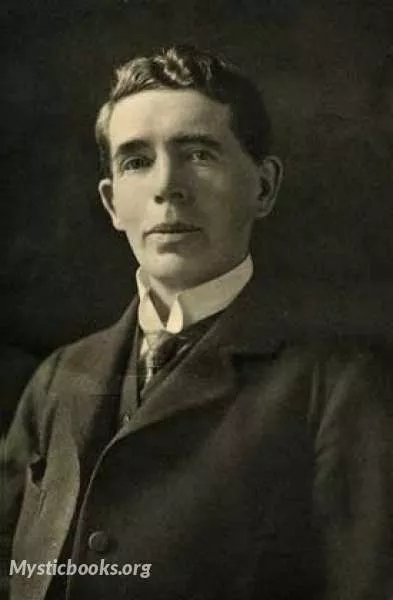
Timeline
Title
Country/Nationality
John Bagnell Bury
John Bagnell Bury was an Anglo-Irish historian, classical scholar, Medieval Roman historian and philologist. He objected to the label "Byzantinist" explicitly in the preface to the 1889 edition of his Later Roman Empire. He was Erasmus Smith's Professor of Modern History at Trinity College Dublin (1893–1902), before being Regius Professor of Modern History at the University of Cambridge from 1902 until his death.
Bury was born and raised on 16 October 1861 in Clontibret, County Monaghan, as the son of Edward John Bury, where his father was Rector of the Anglican Church of Ireland and Anna Rogers. He was educated first by his parents and then at Foyle College in Derry. He studied classics at Trinity College Dublin, where he was elected a scholar in 1879, and graduated in 1882. He was elected a fellow of Trinity College Dublin in 1885 at the age of 24. In 1893, he was appointed to the Erasmus Smith's Chair of Modern History at Trinity College, which he held for nine years. In 1898 he was appointed Regius Professor of Greek, also at Trinity, a post he held simultaneously with his history professorship. In 1902 he became Regius Professor of Modern History at the University of Cambridge.
At Cambridge, Bury became mentor to Steven Runciman (the medievalist), who later commented that he had been Bury's "first, and only, student." At first the reclusive Bury tried to brush him off; then, when Runciman mentioned that he could read Russian, Bury gave him a stack of Bulgarian articles to edit, and so their relationship began. Bury was the author of the first truly authoritative biography of Saint Patrick (1905).
Bury remained at Cambridge until his death at the age of 65 in Rome, while on a visit to Italy. He is buried in the Protestant Cemetery in Rome.
He received the honorary degree Doctor of Laws (LL.D.) from the University of Glasgow in June 1901, the honorary degree of Doctor of Laws (LL.D.) from the University of Aberdeen in 1905, and the honorary degree Doctor of Letters (D.Litt.) from the University of Oxford in October 1902, in connection with the tercentenary of the Bodleian Library.
His brother, Robert Gregg Bury, was an Irish clergyman, classicist, philologist, and a translator of the works of Plato and Sextus Empiricus into English.
Bury's writings, on subjects ranging from ancient Greece to the 19th-century papacy, are at once scholarly and accessible to the layman. His two works on the philosophy of history elucidated the Victorian ideals of progress and rationality which undergirded his more specific histories. He also led a revival of Byzantine history (which he considered and explicitly called Roman history), which English-speaking historians, following Edward Gibbon, had largely neglected. He contributed to, and was himself the subject of an article in, the 1911 Encyclopædia Britannica. With Frank Adcock and S. A. Cook he edited The Cambridge Ancient History, launched in 1919.
History as a science
Bury's career shows his evolving thought process and his consideration of the discipline of history as a "science". From his inaugural lecture as Regius Professor of Modern History at Cambridge in 1902 comes his public proclamation of history as a "science" and not as a branch of "literature". He stated:
I may remind you that history is not a branch of literature. The facts of history, like the facts of geology or astronomy, can supply material for literary art; for manifest reasons they lend themselves to artistic representation far more readily than those of the natural sciences; but to clothe the story of human society in a literary dress is no more the part of a historian as a historian, than it is the part of an astronomer as an astronomer to present in an artistic shape the story of the stars.
Bury's lecture continues by defending the claim that history is not literature, which in turns questions the need for a historian's narrative in the discussion of historical facts and essentially evokes the question: is a narrative necessary? But Bury describes his "science" by comparing it to Leopold von Ranke's idea of science and the German phrase that brought Ranke's ideas fame when he exclaimed "tell history as it happened" or "Ich will nur sagen wie es eigentlich gewesen ist." Bury's final thoughts during his lecture reiterate his previous statement with a cementing sentence that argues "...she [history] is herself simply a science, no less and no more".
On the argument from ignorance and the burden of proof in his book History of Freedom of Thought he said the following.
Some people speak as if we were not justified in rejecting a theological doctrine unless we can prove it false. But the burden of proof does not lie upon the rejecter. I remember a conversation in which, when some disrespectful remark was made about hell, a loyal friend of that establishment said triumphantly, "But, absurd as it may seem, you cannot disprove it." If you were told that in a certain planet revolving around Sirius there is a race of donkeys who speak the English language and spend their time in discussing eugenics, you could not disprove the statement, but would it, on that account, have any claim to be believed? Some minds would be prepared to accept it, if it were reiterated often enough, through the potent force of suggestion.
Books by John Bagnell Bury
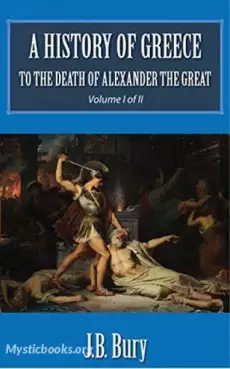
A History of Greece to the Death of Alexander the Great, Vol 1
The book covers artistic and literary development, as well as politics and war, and its field of view includes western Asia Minor, the Agean archipelago, and “Greater Greece”, first published in 1900. It went on to become a standard text in many coll...
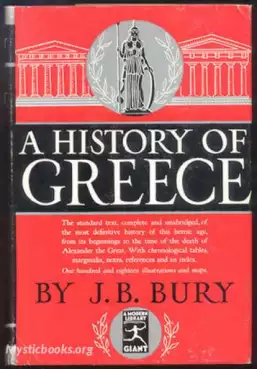
A History of Greece to the Death of Alexander the Great, Vol 2
A History of Greece to the Death of Alexander the Great was first published in 1900. It went on to become a standard text in many colleges and was used as a definitive guide to our understanding of the pre-Hellenistic kingdoms. Richly supplemented wi...
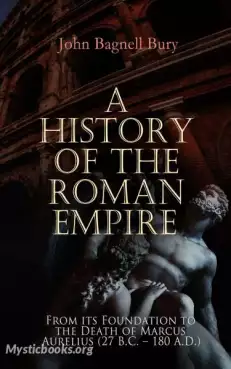
The Students’ Roman Empire, Part 1
The writings of J. B. Bury, on subjects ranging from ancient Greece to the 19th-century papacy, are at once scholarly and accessible to the layman. This work covers the period from the beginning of the Roman Empire until Gibbon begins; from Augustus...
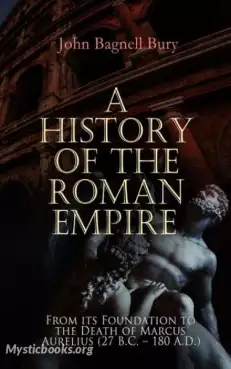
The Students’ Roman Empire, Part 2
The writings of J. B. Bury, on subjects ranging from ancient Greece to the 19th-century papacy, are at once scholarly and accessible to the layman. This work covers the period from the beginning of the Roman Empire until Gibbon begins; from Augustus...
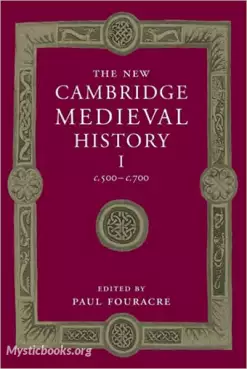
The Cambridge Medieval History, Volume 01, The Christian Roman Empire and the Foundation of the Teutonic Kingdoms
The Cambridge Medieval History is a history of medieval Europe in eight volumes published by Cambridge University Press and Macmillan between 1911 and 1936. Publication was delayed by the First World War and changes in the editorial team.
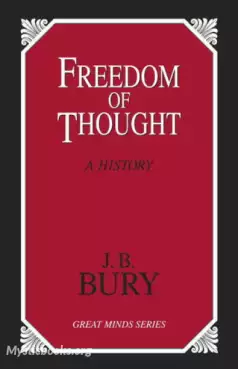
A History of Freedom of Thought
The great civil liberties we enjoy today, like Freedom of Speech and Freedom of the Press, have their foundation in Freedom of Thought. Without being able to freely explore all kinds of matter with an inquisitive mind, whether it be religious, politi...
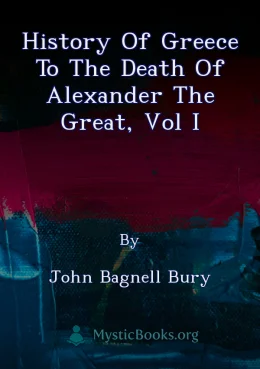
History of Greece to the Death of Alexander the Great, Vol I
J. B. Bury wrote his “History of Greece” before World War I, but it was such a good overview of classical Greek history that the third edition was still being used as a college textbook in the late 1960′s. In the newer editions, a co-author rewrote t...
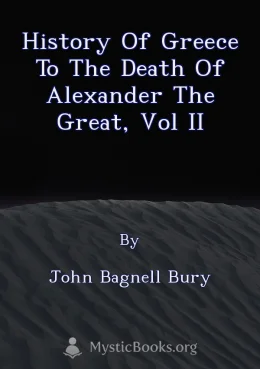
History of Greece to the Death of Alexander the Great, Vol II
J.B. Bury wrote his “History of Greece” before World War I, but it is such a good overview of classical Greek history that the third edition was still being used as a college textbook in the late 1960′s. In the newer editions, a co-author rewrote the...
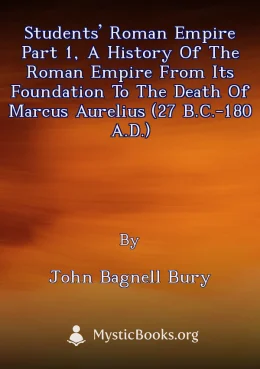
Students’ Roman Empire part 1, A History of the Roman Empire from Its Foundation to the Death of Marcus Aurelius (27 B.C.-180 A.D.)
This book provides a detailed overview of the Roman Empire from its foundation under Augustus in 27 BC to the death of Marcus Aurelius in 180 AD, covering the reigns of some of the most influential emperors in Roman history. The book offers insights...
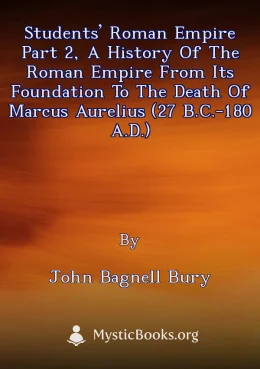
Students’ Roman Empire part 2, A History of the Roman Empire from Its Foundation to the Death of Marcus Aurelius (27 B.C.-180 A.D.)
This book delves into the history of the Roman Empire from its founding under Augustus to the death of Marcus Aurelius, spanning the years 27 B.C. to 180 A.D. It covers the period of transition from the Roman Republic to the Empire, the establishment...
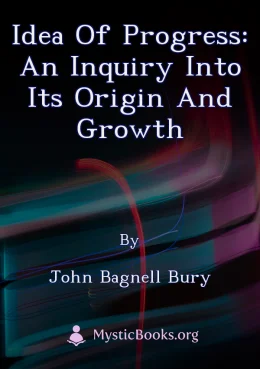
Idea of Progress: An Inquiry into Its Origin and Growth
The Idea of Progress is a classic work of historiography that explores the development of the concept of progress from its origins in the classical period to the nineteenth century. Bury argues that the idea of progress is a relatively recent phenome...